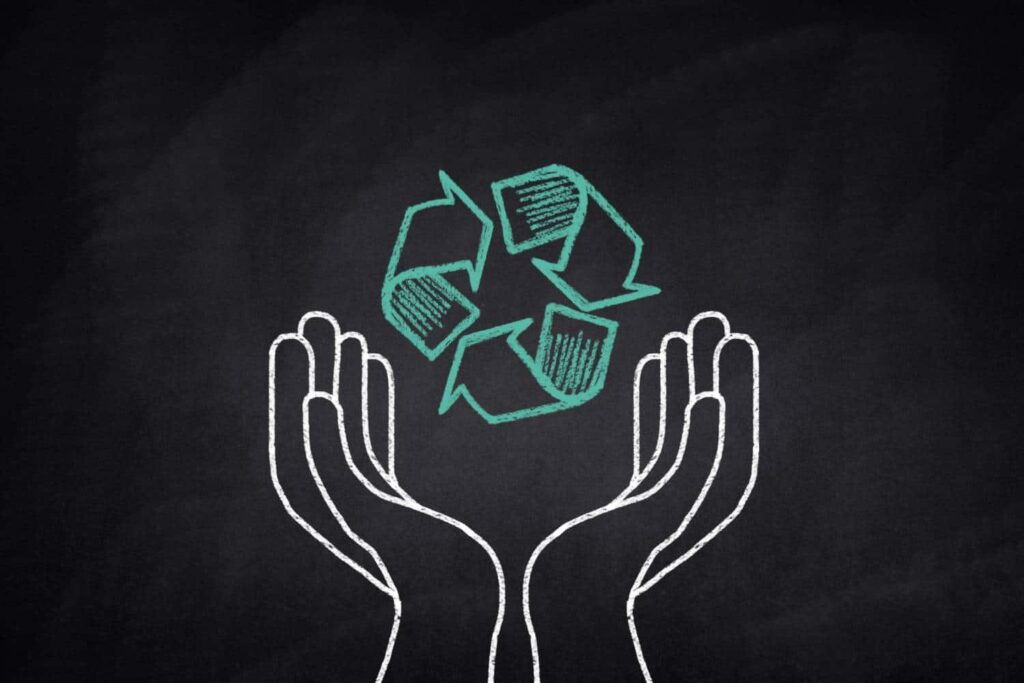
Recycling is quite akin to exercise in the sense that everyone knows it’s importance, but it seems like a chore. While many don’t recycle because they’re simply too lazy to do so, others don’t recycle because they’re just never taken the time to learn what can and can’t be recycled. Either way, if you’re an absolute beginner to recycling, you probably don’t know much about it beyond the council’s yellow recycling bins. And even then, you probably don’t use these recycling bins at all.
But don’t worry – as the owner of 4 Waste Walk-In Skip Bins, I’m here to let you know more about recycling. So, continue reading this post to discover the basics of recycling. Hopefully, when you’re done reading, you’ll realise the importance of recycling and take part in it.
Table of Contents
The recycling loop
I’m sure that you’ve noticed the triangular recycling loop with green arrows. This is something that can be seen everywhere around us. But, have you ever wondered what this recycling loop is supposed to indicate?
To elaborate, the recycling loop consists of three steps. These include a collection of recyclable waste, processing collected waste to create new products and buying products from recycled materials.
Everybody is encouraged to understand the importance of recycling. Not only does recycling save materials needed for manufacturing new products, but it also reduces waste in landfills.
Not all items can be recycled
Now, before you go thinking that you should place all your waste into recycling bins, you need to stop. Not all types of waste can be recycled, so you need to ensure that you know which waste is recyclable.
Some waste items that can be recycled include garden waste, paper, metal, glass, plastic, cardboard milk cartons and rechargeable batteries, among others. If you need to dispose of this type of waste, then don’t dump it into landfills. This waste can easily be recycled and put to better use.
How to recycle waste efficiently?
When it comes to recycling household waste, you have more than a few options on hand.
Of course there are the council provided yellow bins, where you can simply drop off your recyclable waste. Your waste will be collected and sent for recycling. But, if you have a significant amount of recyclable waste to dispose, you should consider hiring a skip bin from us at 4 Waste Walk-In Skip Bins.
Our skip bins are large enough to accommodate up to 12m³ of waste. And, we offer both garden skip bins and junk skip bins to cater to all types of household waste, not just recyclable waste.
If you’re serious about recycling all your waste and not just what goes into a recycling bin, consider hiring a skip bin from a company who is passionate about recycling. For this, you needn’t look any further than us at 4 Waste Walk-In Skip Bins. With us around, you can dispose any amount of household waste in an environmentally friendly manner easily and efficiently.
For more tips, read ‘How to Reduce, Reuse, Recycle your waste’.
Conclusion:
Recycling waste is something that everybody needs to do. The recycling loop encourages everyone to buy recycled goods and place recyclable waste into recycling bins so it can be sent for processing. However before you place waste into a recycling bin, understand that not all types of waste are recyclable. You need to make sure that you put only recyclable waste into recycling bins.
When it comes to the easiest and most efficient ways of recycling waste, consider hiring a skip bin. And, for reliable and affordable skip bins in Brisbane, look no further than 4 Waste Walk-In Skip Bins.
Call us at 0413 333 330 or order one of our skips online today!
